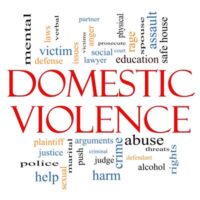Defending Yourself Against False Allegations of Domestic Violence in Florida Divorce Cases

Domestic violence is a deeply serious issue, and Florida courts handle every allegation with care and urgency. Yet, during a difficult divorce, emotions can run high, and sometimes, false accusations arise. When this happens, the effects can be devastating: you may be removed from your home, restricted from seeing your children, or face damage to your reputation that lingers long after the case ends.
For anyone unfairly accused, the situation feels overwhelming and unjust. False claims can destroy personal and professional relationships and jeopardize your future if left unchallenged. Acting quickly with the guidance of an experienced Boynton Beach domestic violence attorney is the best way to protect your rights, defend your name, and restore balance in your life.
How False Allegations Happen in Florida Divorce Cases
False accusations of domestic violence can arise from fear, anger, or an attempt to gain leverage in a contentious divorce or custody dispute. In Florida, a person can request a temporary injunction for protection based solely on their sworn statement. This injunction can be granted without a hearing, temporarily forcing the accused from their home or limiting contact with their children until the court reviews the evidence.
While Florida’s domestic violence laws are designed to protect actual victims, the system can be misused. Some individuals weaponize these laws to influence child custody, property division, or alimony determinations. When that happens, the accused must act quickly and carefully to clear their name.
What to Do Immediately After a False Allegation
If you are served with a temporary injunction or accused of domestic violence, the most important step is to stay calm and contact an attorney immediately. Do not reach out to your accuser; any attempt to communicate can be misinterpreted as harassment or a violation of court orders.
Your lawyer can help you collect evidence to show the court that the accusations are false. This may include:
● Text messages, emails, or phone logs showing civil or unrelated communication.
● Witness statements from people who can verify your behavior.
● Documentation or records that place you elsewhere when the alleged incident occurred.
Even if the injunction is temporary or feels unjust, always comply with it until your hearing. Under Florida Statutes § 741.31, violating an injunction, even one based on false information, can lead to criminal penalties that complicate your defense.
Building a Strong Legal Defense
Injunction hearings allow both sides to present evidence and testimony. This is your opportunity to demonstrate inconsistencies in your accuser’s story, lack of physical evidence, or motives for making a false claim.
A skilled attorney may use phone records, surveillance footage, or social-media activity to disprove allegations. In some cases, cross-examination reveals contradictions or ulterior motives, such as attempts to gain custody or financial advantage.
If criminal charges have been filed alongside the civil injunction, your attorney can coordinate both cases to ensure consistency and help protect your record from wrongful conviction or public stigma.
Protecting Your Reputation and Parental Rights
Beyond court filings, false allegations can seriously harm your personal life. A public injunction or police report can affect your employment, housing, or social relationships.
False claims can also influence child custody. Under Florida Statutes § 61.13, courts consider each parent’s moral fitness and any history of domestic violence when determining timesharing and parental responsibility. Demonstrating that the accusation was false can help preserve your parental rights and credibility in family court.
Once the court finds that the allegations lack merit, your attorney can help you take additional steps to repair your reputation, such as expunging dismissed charges or petitioning for the removal of public records that could harm your standing in the community.
Moving Forward After False Allegations
Clearing your name after a false accusation takes courage and patience. These cases can be emotionally draining, but the truth, supported by evidence and skilled advocacy, often prevails. Having a steady legal ally ensures that every step you take moves you closer to closure and peace of mind.
Contact Taryn G. Sinatra, P.A.
If you are facing false allegations of domestic violence, you do not have to go through it alone. The legal team at the Law Office of Taryn G. Sinatra, P.A. understands how damaging these situations can be and how important it is to protect your future.
We approach every case with empathy, discretion, and determination to uncover the truth. Contact us today to speak with a compassionate Boynton Beach domestic violence attorney who will defend your rights and help you rebuild your life with confidence.
Sources:
● Florida Statutes § 741.28 – Definition of Domestic Violence
● Florida Statutes § 741.30 – Domestic Violence; Injunction; Petition; Hearing; Issuance; Enforcement
● Florida Statutes § 741.31 – Violation of Injunction for Protection
● Florida Statutes § 61.13 – Support of Children; Parenting and Time-Sharing; Powers of Court
● Florida Department of Children and Families – Domestic Violence Services
